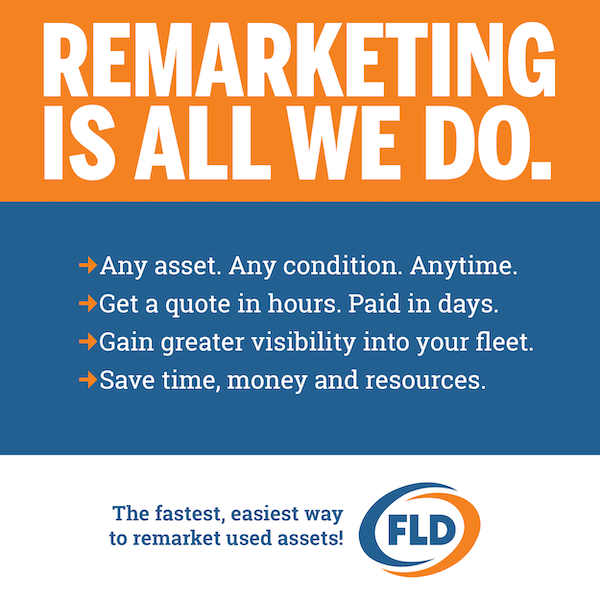
By Ed Dubens, CEO/ Founder of eDriving
As countries around the world start discussing lockdown exit plans and businesses adjust to new ways of operating, are you prepared for living and working in a COVID-19 world?
It may feel like longer, but only a few weeks ago organizations around the world started taking drastic measures in response to the global coronavirus pandemic. Now, although day-to-day life for the majority of companies remains significantly affected, for many there is a feeling that we will soon be gradually edging back towards “normality”, but what will the new “normal” look like?
According to The Brookings Institution, a nonprofit public policy organization based in Washington, DC, up to half of American workers are currently working from home, more than double the number who worked from home (at least occasionally) in 2017-18. And, while some jobs can’t be carried out from home, it is expected that the coronavirus outbreak is “accelerating the trend toward telecommuting, possibly for the long term.” In the UK, the motoring association, The AA, revealed that 66 percent of those surveyed were currently working from home, and 11 percent said they would work from home more often after lockdown lifts.
For organizations with employees who usually drive as part of their jobs, this could result in a lasting reduction in employees regularly driving for work. Of course, while specific “driver” roles cannot be performed from home, and companies with delivery drivers are experiencing unprecedented demand, many organizations could see a proportion of employees reducing travel. For example, sales reps conducting more virtual meetings instead of face-to-face appointments.
The COVID-19 pandemic has brought new challenges for employees that are still “on the road.” As well as focusing on the previously well-known major risk factors facing drivers – including speed, distraction, impairment and fatigue – fleet operators are now incorporating coronavirus-related safety measures into their driver safety policies, covering topics including hygiene and vehicle disinfection. Additionally, for companies employing delivery drivers, many of which have taken on new recruits, social distancing and contact-free deliveries are key considerations. And the indications are that some of these driver policy adjustments could end up being permanent.
Putting driver safety and customer/ public safety first is not a new consideration, but incorporating employee hygiene into driver safety policies is. A YouGov poll of more than 24,000 adults published in January revealed that 40 percent of Americans don’t always wash their hands with soap after they go to the bathroom. Considering that one of the key global recommendations to prevent the spread of coronavirus has been to wash hands frequently with soap and water, I would expect that the survey results would be drastically different if it was to be conducted again now, or even a few months into the future.
And, because we know that repeating behaviors can lead to new habits, it’s possible some of the steps we’re currently taking to help prevent the spread of coronavirus – including handwashing and vehicle sanitization – could become the new norm. They may only be small adjustments, but recommendations like this could significantly affect fleet operations. Just a few months ago, one of the buzz terms in fleet was “Mobility as a Service” or “MaaS”, which described a shift in transport to mobility consumed as a service, such as shared or “pool” vehicles, ride-sharing, ride-hailing and public transport. Now, the landscape couldn’t look more different.
Where possible, many fleet operators are leasing additional vehicles to reduce the need for sharing. And, rather than riding together, many employees are now mirroring trips, with many two-person deliveries, for example, being made in two vehicles. Previous concerns about the environment and operating costs have been temporarily put aside while organizations prioritize preventing the spread of coronavirus. And, while some of these safety measures – such as traveling in separate vehicles to the same job/ delivery – may not last in the long term, many others, such as hygiene precautions and even contact-free deliveries, could be around for the foreseeable future.
As organizations resume more activities, whether a proportion of employees remain home-based or not, it’s likely that to counterbalance many of the emergency steps being taken now, fleet operators will be under huge pressure to cut costs. While reducing travel is one way to achieve this, encouraging safer driving is another. This is something organizations can work on now, particularly with employees who are off the road, or driving fewer hours. Courses on defensive driving, for example, can be assigned now to help ensure drivers’ attitudes and behaviors are refreshed as we move towards “normality.” And helping drivers stay safe is always a good business decision, whatever “normal” looks like.
About eDriving
eDriving helps organizations to reduce collisions, injuries, license violations and total cost of fleet ownership through a patented driver risk management program.
Mentor by eDriving is a smartphone-based solution that collects and analyzes driver behaviors most predictive of crash risk and helps remediate risky behavior by providing engaging, interactive micro training modules delivered directly to the driver in the smartphone app. As part of a broader risk management platform, Virtual Risk Manager®, eDriving provides organizations with everything they need to establish safety as a strategic imperative, and support drivers and managers as they strive to create a crash-free culture®.
eDriving is the driver risk management partner of choice for many of the world’s largest organizations, supporting over 1,000,000 drivers in 96 countries. Over the past 24 years, eDriving’s research-validated programs have been recognized with over 75 awards around the world.



